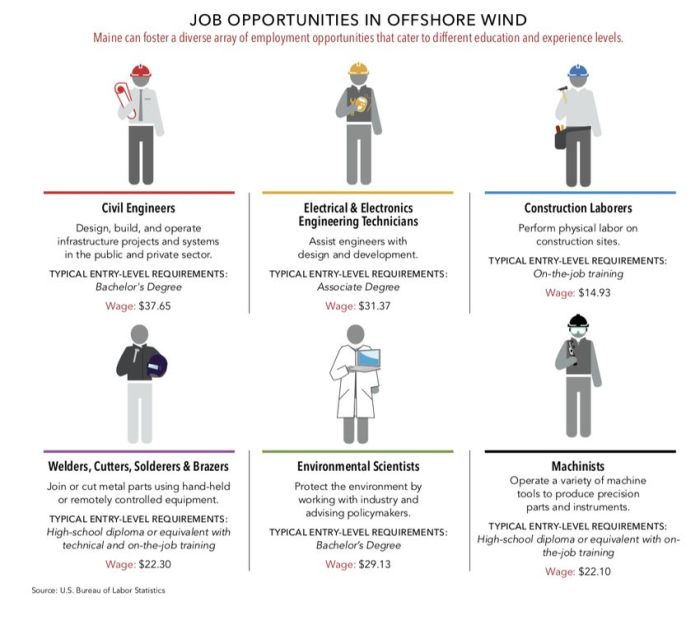Offshore job pay rates have become a hot topic in today’s globalized economy. With the rise of remote work and outsourcing, businesses are increasingly looking to hire talent from around the world. This guide provides a comprehensive overview of offshore job pay rates, exploring the factors that influence them, the benefits and challenges associated with offshore hiring, and emerging trends in this dynamic field.
As we delve into the complexities of offshore job pay rates, we will examine the different pay structures used, compare rates across countries, and analyze the reasons for these variations. We will also discuss the benefits and perks offered to offshore employees, such as health insurance, paid time off, and flexible work arrangements.
Offshore Job Pay Rate Structures
Offshore job pay rates are determined by various factors, including location, industry, and experience. Common pay structures include:
- Hourly wages: Employees are paid a fixed amount per hour worked.
- Monthly salary: Employees receive a fixed monthly payment regardless of hours worked.
- Contract-based pay: Employees are paid a lump sum for completing a specific project or task.
Factors Influencing Pay Rates
The following factors influence offshore job pay rates:
- Location: Pay rates vary depending on the cost of living and labor market conditions in the host country.
- Industry: Jobs in high-demand industries, such as IT and finance, typically offer higher pay rates.
- Experience: Employees with more experience and expertise command higher salaries.
Comparative Analysis of Offshore Job Pay Rates
Offshore job pay rates vary significantly across countries. Countries with higher costs of living, such as the United States and Western Europe, offer higher pay rates. Conversely, countries with lower costs of living, such as India and the Philippines, offer lower pay rates.
Reasons for Differences
The differences in offshore job pay rates are attributed to factors such as:
- Cost of living: The cost of living in the host country influences the level of pay required to attract and retain skilled workers.
- Labor market conditions: The availability of skilled workers in the local labor market affects pay rates.
- Government regulations: Government regulations, such as minimum wage laws, can impact pay rates.
Benefits and Perks Associated with Offshore Jobs
Offshore employees often enjoy a range of benefits and perks, including:
- Health insurance and other medical benefits
- Paid time off, including vacation and sick leave
- Retirement plans
- Flexible work arrangements
- Language and cultural training
Employee Satisfaction and Retention
These benefits can enhance employee satisfaction and retention by providing financial security, work-life balance, and opportunities for professional development.
Challenges and Considerations for Employers: Offshore Job Pay Rates
Hiring offshore employees presents several challenges and considerations for employers:
Legal and Compliance Issues

- Visa requirements
- Tax implications
- Employment laws and regulations
Tips for Employers

- Research the legal and compliance requirements in the host country.
- Partner with reputable staffing agencies that specialize in offshore hiring.
- Establish clear communication and expectations with offshore employees.
Emerging Trends in Offshore Job Pay Rates

Technology and globalization are driving emerging trends in offshore job pay rates:
Impact of Technology

- Automation and AI are reducing the need for low-skilled offshore workers.
- Cloud computing and remote work are enabling more companies to hire offshore employees.
Impact of Globalization, Offshore job pay rates
- Increased competition for skilled workers is driving up pay rates in emerging offshore destinations.
- Freelance platforms and online marketplaces are making it easier for offshore workers to find work.
Future Trends
Offshore job pay rates are expected to continue to rise as the demand for skilled workers increases and technology and globalization continue to reshape the job market.
Popular Questions
What are the key factors that influence offshore job pay rates?
Location, industry, experience, and skill set are among the key factors that influence offshore job pay rates.
How do pay structures for offshore jobs vary across different countries?
Pay structures for offshore jobs vary across countries due to differences in cost of living, labor market conditions, and government regulations.
What are some of the common benefits and perks offered to offshore employees?
Common benefits and perks offered to offshore employees include health insurance, paid time off, flexible work arrangements, and relocation assistance.
